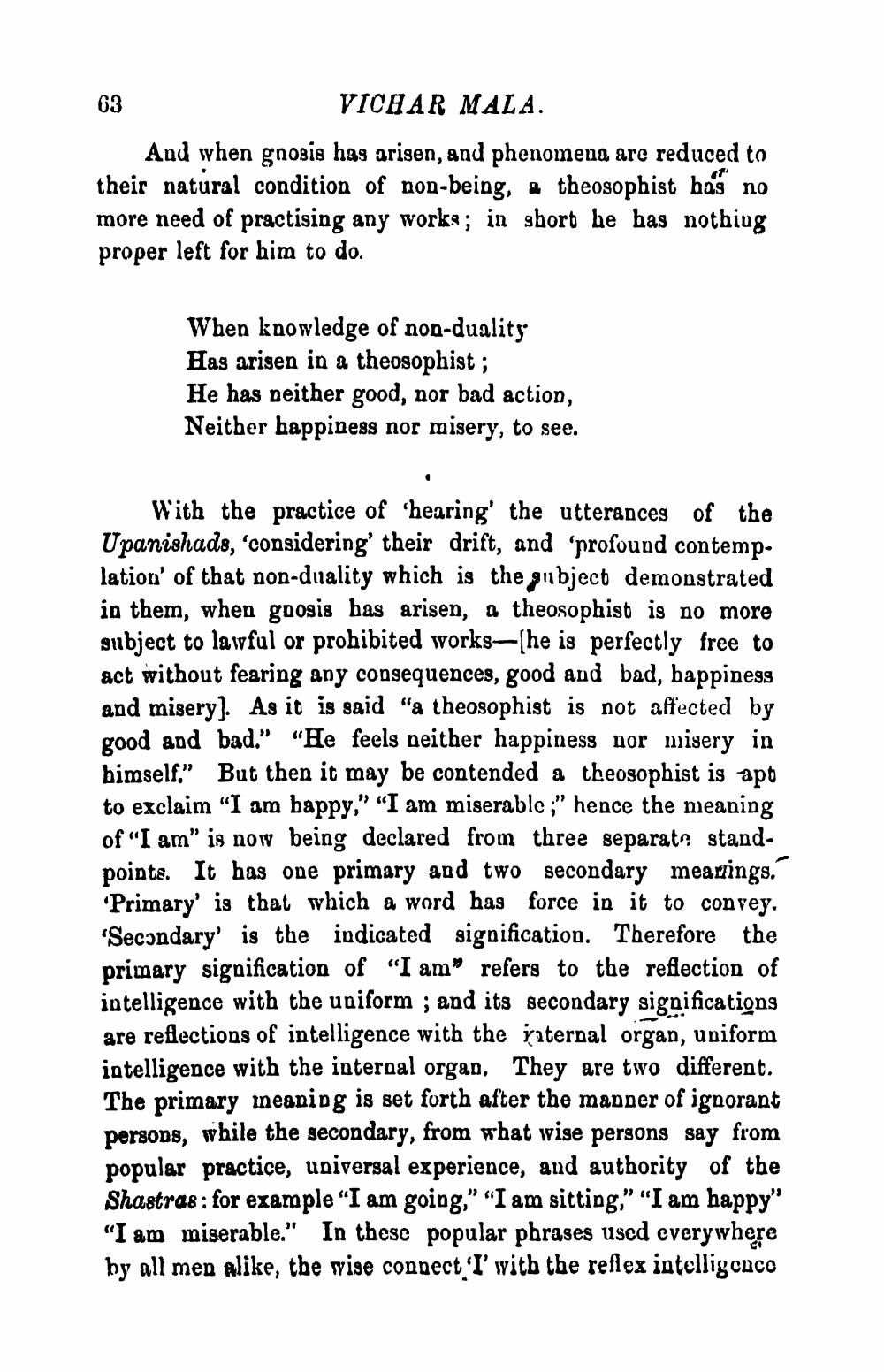________________
VICHAR MALA.
And when gnosis has arisen, and phenomena arc reduced to their natural condition of non-being, . theosophist bas no more need of practising any works; in short he has nothiug proper left for him to do.
When knowledge of non-duality Has arisen in a theosophist; He has neither good, nor bad action, Neither happiness nor misery, to see.
With the practice of 'hearing' the utterances of the Upanishads, 'considering their drift, and 'profound contemplation' of that non-duality which is the gıbject demonstrated in them, when gaosis has arisen, a theosophist is no more subject to lawful or prohibited works—(he is perfectly free to act without fearing any consequences, good and bad, happiness and misery). As it is said "a theosophist is not affected by good and bad." "He feels neither happiness nor misery in bimself." But then it may be contended a theosophist is apo to exclaim “I am happy," "I am miserable;" hence the meaning of "I am" is now being declared from three separat, stand. points. It has one primary and two secondary meanings.
Primary' is that which a word has force in it to convey. 'Secondary' is the indicated signification. Therefore the primary signification of "I am” refers to the reflection of intelligence with the uniform ; and its secondary significations are reflections of intelligence with the raternal organ, uniform intelligence with the internal organ. They are two different. The primary neaning is set forth after the manner of ignorant persons, while the secondary, from what wise persons say from popular practice, universal experience, and authority of the Shastras: for example “I am going," "I am sitting," "I am happy" "I am miserable." In these popular phrases used everywhere hy all men alike, the wise connect 'I' with the reflex intelligcuco




